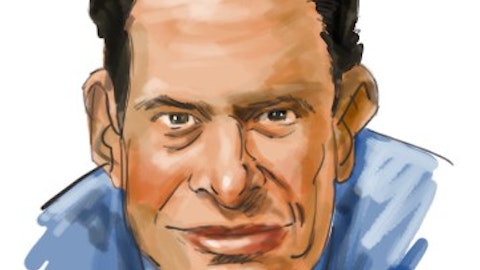Jaime Caballero : Hi, Badr. How are you? And so let me address your different questions. I’d say, firstly, let’s start with expectations around FEPC payments so this year. So there are no further FEPC payments budgeted in Hacienda as in the Ministry of Finance budget for this year. However, there is the flexibility, the legal flexibility to apply excess budget surpluses to FEPC, right? The extent to which those budget surpluses are going to occur or not is yet being defined, right? It’s yet being defined. In our conversations with the Ministry of Finance, we’ve discussed that as a possibility but it is yet an uncertain one. So I would say that the base case is no further FEPC payments this year, but there is an upside that that occurs and that’s something that we are actively working with the Ministry of Finance.
With regards to your second question around gross debt levels basically we closed with a healthy gross debt-to-EBITDA ratio in the third quarter and that’s going to continue to be reduced over the next few months, and the outlook is a positive one for next year. I think the extent to which we’re going to incur incremental debt or not next year is going to depend on the assessment of the timing in which the FEPC payments are going to come in and at the same time how capital markets evolve. I think it’s going to be — all those factors are going to have to be considered. All those factors are going to have to be considered. I think it’s still premature to give you a view on that. We’re going to be discussing with the Board over the coming weeks, what is our view on the investment plan for next year?
What is the optionality that we see around that investment plan? What are the trade-offs associated to the investment plan with regards to cash, with regards to a potential dividend payments and decisions are going to be made on that basis. But what I would say is that we do have a very strong inclination to protect the investment plan. We have a strong inclination to protect the debt levels that we have at this stage, but we are keeping our flexibility. We are keeping our flexibility because things are dynamic. And what is going to be the best combination to protect value for the company is something that is yet to be determined. With regards to your third question around working capital balance and how to offset the pressure of FEPC, clearly, I’d say two things.
The first thing is that we are approaching this conversation from a healthy place. I mentioned in the call in Spanish that our free cash flow in 3Q is the best free cash flow in the company’s history, the first free cash flow in the company’s history ever. And it’s obviously, a combination of multiple factors, but it is accumulating as opposed to liberating. So it’s more rather and less. And that helps a lot. Now to what extent that can fully offset an accumulating FEPC indefinitely, I’d say the answer is, no we can’t. It cannot. It will not fully offset the FEPC effect and that’s why COP 19 trillion were included in the national budget. And that’s why we are in discussions with the government to increase that amount. I think that is something that is going to evolve over the coming months and probably in our next call we can give you a better view of that.




